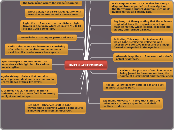Big Bang
The Big Bang was an explosion that happened at essentially the first point in time. Before it, there was supposedly nothing.
Matter
That earliest matter was mostly the simplest of all atoms, hydrogen and helium, and some lithium as well.
This matter was distributed unevenly, so naturally clumps of matter started to form.
Nebulae
The uneven clumps of matter eventually evolved to become galaxies. They were more appropriately refered to as Nebulae.
Hydrogen + Helium
Within the nebulae, dense concentrations of Hydrogen and Helium were forming.
Nuclear Reactions
The formations of Hydrogen and Helium bodies (nebulae) were so dense that nuclear reactions started forming in their core.
Heat and Light
These nuclear reactions gave off energy in the form of heat and light.
Stars
The large bodies that formed due to these reactions were called stars.
Billions of Stars = galaxy
Billions of stars form what is called a galaxy. There are many galaxies in our universe, in fact they actually compose it.
Milky Way
THe Milky was is our galaxy. It is a medium sized galaxy in the universe part of a group of galaxies called the local group.
Solar System
The solar system is the sun (our star) and all the objects that are revolving around it. There are eight planets with their moons, comets, asteroids, and meteoroids all revolving around the sun. All these objects are left over material from the point in time where the sun was born.
All Elements
All the elements that we know of have once been made inside a star. This is why stars are considered our parents. All elemnts that make life possible were cooked in stars. Without stars, elements like oxygen, carbon, and hydrogen would not exist.
Heat
The temperature during the Big Bang was 10 to the power of 32 degrees which is hotter than anything anyone can even imagine. The universe has been cooling down ever since.
Expansion
The Big Bang caused the universe to expand instantly. The energy it gave out caused strong expansion to occur and the universe has been expanding ever since. Scientists have even put the possibility that the universe may continue to expand indefinitely.
Energy
The Big Bang gave off tremendous amounts of energy. This energy was the base for the formation of almost everything.
Explosion
The explosion that the Big Bang caused was so strong that huge amounts ogf heat and energy were given off. Reactions started to happen and this is hoe life started.
Universe
THe Big Bang created our universe.
Future
Many scientists have put forward possible options for our universe in the future. It is a fact that our universe is currently expanding. So scientists have reached on of the following two conclusions:
1- Eternal Expansion
2- Contraction After Expansion
We know that the universe is expanding due to the knowledge of what we call red shifting. Each galaxy has a different colored wave length depending on the direction it is headed. Galaxies that are moving away have red wave lengths.
Contraction After Expansion
Or it will contract after expanding due to the force of gravity. It will then collapse in on itself possibly creating another Big Bang.
Eternal Expansion
Either the universe will continue to expand indefinitely, eventually disappearing.









